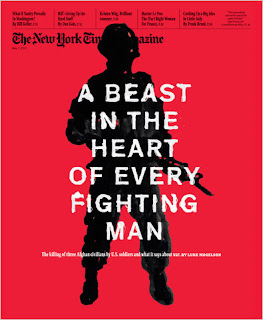P.Z. Myers has a post up lambasting Christian apologist William Lane Craig for his defense of genocides in the Old Testament. Here’s the damning paragraph:
Moreover, if we believe, as I do, that God’s grace is extended to those who die in infancy or as small children, the death of these children was actually their salvation. We are so wedded to an earthly, naturalistic perspective that we forget that those who die are happy to quit this earth for heaven’s incomparable joy. Therefore, God does these children no wrong in taking their lives.
Don’t worry, this isn’t the part I agree with. This is just more of the same bizarre situational ethics that I only hear Christians fall back on when it’s time to explain away the Old Testament. By this logic, Christians should consider killing any children I have, to spare them my heathen upbringing, and I’d be doing a kindness if I waited outside a church to shoot anyone who had just received a plenary indulgence on Divine Mercy Sunday today. Christians can reasonably view death as not too tragic, because they believe in an afterlife administered by a merciful God, but I rarely hear them speak this way in any other context.
But Craig went on to say something I do find compelling (though P.Z. Myers did not.)
WLC: So whom does God wrong in commanding the destruction of the Canaanites? Not the Canaanite adults, for they were corrupt and deserving of judgement. Not the children, for they inherit eternal life. So who is wronged? Ironically, I think the most difficult part of this whole debate is the apparent wrong done to the Israeli soldiers themselves. Can you imagine what it would be like to have to break into some house and kill a terrified woman and her children? The brutalizing effect on these Israeli soldiers is disturbing.
Myers: No. No, I can’t imagine that. I can imagine parts of it: I can imagine a long, heavy piece of sharp metal in my hands. I can imagine a frightened, unarmed woman in front of me, trying to shelter her children. The part I can’t imagine, the stuff I’m having real trouble with, is imagining voluntarily raising my hand and hacking them to death. I have a choice in that situation, and I know myself well enough that if have to choose between killing people and letting them live, I’d let them live, not that it would be a difficult decision at all. I also have no illusion that, in this imaginary situation where I have all the power and my ‘enemies’ are weak and helpless, I am the one who is being wronged.
The idea that a good God would order his chosen people to commit inhuman brutalities seems unsupportable. It’s one of the theodicy problems that bothered me when I posted about the slaughter of the Amalekites, and I’m glad Craig can admit that this at least is disturbing. So this is where I back Craig against Myers.
I think Myers’s response is produced by the kind of cushy, privileged, upper-middle class background we share. Neither Myers not I have any expectation of facing a situation where we would face the choice to take someone else’s life, so the idea of steeling oneself to kill is abstract. Maybe Myers will change his tune if he takes a look at the cover story of the New York Times Magazine this week: “A Beast in the Heart of Every Fighting Man.”
The story covers the infamous “kill team” of American soldiers in Afghanistan — a group of soldiers who allegedly murdered civilians for kicks and then planted weapons on their bodies so they looked like insurgents. I recommend reading the entire story, but here’s a small excerpt describing the experience of a whistleblower on the team:
The man, Mullah Allah Dad, was brought outside, where, Winfield told investigators, “Sergeant Gibbs said: ‘Just put him down in that ditch right there. Put him on his knees.’ ” Winfield and Morlock both claim that after Allah Dad was lowered to his knees, they took cover behind a sand berm about 15 feet away. Winfield and Morlock say Gibbs activated an American fragmentation grenade and tossed it at Allah Dad’s feet. In his confession, Morlock says that as he did so, Gibbs yelled: “Kill him! Kill him!” During his initial questioning, Winfield remembered Morlock giving the order to shoot before the grenade detonated.
Morlock and Winfield both admit firing their rifles. Winfield, whose lawyer now claims he deliberately aimed high, told Army special agents: “I took a man from his family. I don’t know if it was my bullets that killed him or the grenade that killed him. But I was a part of it.” Christopher Winfield, who has had many conversations with his son about this moment, told me: “Fear set in for him. He said he was having a huge anxiety attack. He couldn’t feel his fingers. He couldn’t feel his feet. He panicked . . . almost passed out.” Christopher said that for a moment, while trying to decide what to do, his son even considered shooting Gibbs.
With America engaged in four wars (if you’re counting Pakistan, and I do), it’s essential to recognize the way that brutalities warp and damage the person committing them as well as the victim. Myers is being glib when he refuses to recognize that, whether the Israelites who slaughtered infants were driven to atrocities out of fear of God or chose brutality willingly, they were marked and wounded by their acts.
Craig’s promises of salvation after death don’t address the fate of these Old Testament sin-eaters. Myers’s dismissal of the damage suffered by someone who has done evil lets us off the hook for sending soldiers into moral (as well as mortal) peril.













